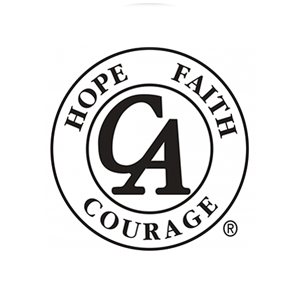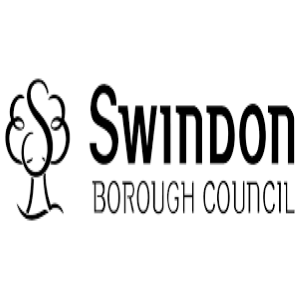Drug & Alcohol Rehab in Swindon

How Does Rehab Work?
Rehab involves multiple strategies that are designed to address individual addiction with support, wellness methods, and steps to restore good mental health. Clients are introduced to life-changing, supportive, and therapeutic programmes that are led by addiction therapists. Along with individual therapeutic intervention, individuals can benefit from the support received from group sessions. Addictions are treated through an inpatient or an outpatient programme. For those who enter an inpatient rehab programme, the programme requires that one remain inside the centre of the facility with limited access to the outside world. Outpatient services are an option for those with less severe dependencies and will meet with a counsellor weekly while attending work commitments and staying at home.
What Happens During Residential Rehab?
When you are ready to enter rehab for drug and/or alcohol addiction, it is a courageous step towards recovery. Although achieving balance and breaking the cycle of dependence takes some effort, it can be achieved. To assist you to make an informed decision concerning rehab, we look at the options available and what to expect during rehab.
Prior to entering treatment, every individual will be assessed by a medical professional. The aim is to create a treatment plan suited to individual health and wellness needs. This is particularly important for those with a history of addiction and comorbid mental conditions including depression, anxiety or bipolar disorder.
An assessment is followed by detox. Detox is a formal process and is performed in a residential rehab or at home with support from a medical professional (outpatient services). During this period, individuals abstain from drugs and/or alcohol use until the drug/alcohol is no longer present in the body. Because of the challenges associated with withdrawal, a medically supervised detox from drugs and alcohol is advised.
While attending rehab patients will receive therapy. Therapy can be delivered on an inpatient or outpatient basis. Therapy consists of individual counselling including Cognitive Behavioural Therapy, skill-building and group therapy.
1. Assessment

To receive the best treatment to suit your needs, an assessment is definitely the first stage in the recovery approach. Reviews are carried out with a medical professional and can include a telephone screening. The professional will ask questions with regards to your wellbeing, your substance use, any history of addiction, and whether you have any comorbid mental health issues. A phone assessment offers staff members with private information that will help to safely manage the detox process.
When you’re ready to pursue treatment for drug and alcohol addiction, a medical assessment must be completed. Assessments will guide therapy because it provides staff with the information, they need to develop a tailored treatment plan or advise on the appropriate intervention.
2. Detox

Detox involves the cessation of drugs and alcohol from the body. With professional assistance, it is safely facilitated and is most commonly monitored in a private rehab because of risks associated with withdrawal.
It is best to have a supported medical detox because experienced staff are readily available to help you through withdrawal. As the drug is no longer consumed, you may begin to develop withdrawal symptoms. Without professional help, there is a higher risk of relapsing. Detoxification is followed with a fully tailored therapeutic programme. You can attend inpatient or outpatient therapy that is managed by trained addiction counsellors and a dedicated team.
3. Therapy

Therapy includes the one-on-one and group sessions you will attend with a qualified therapist, counsellor, and support staff. Treatment is provided in both a residential rehab and an outpatient service. The direction for therapy will depend upon individual circumstances.
Step by Step Process for Residential Rehab
To understand your medical and mental health history.
Arrange a suitable date to begin your journey to recovery.
Begin the managed withdrawal process from substances including alcohol.
To understand the root cause of addiction and how to overcome it.
Aftercare is provided to help manage the risk of relapse.
To help heal the wounds that addictive behaviour has caused others.
Find your Nearest Rehab Centre near Swindon
The nearest rehab centre is Clouds House.
Address: Clouds House, East Knoyle, Salisbury, Wiltshire, Salisbury SP3 6BE, United Kingdom
Call 0333 4444 432 to discuss your alcohol or drug rehab requirements and any other questions you may have about the process of residential rehab.
Outpatient Addiction Services in Swindon
Outpatient addiction services are available to those who do not wish to commit to a residential clinic or require a more affordable option for treatment. To help you with the appropriate treatment, we provide a breakdown of outpatient services compared to residential ones.
Outpatient services are not a 24 hour or even a 12-hour programme, but rather involve weekly meetings with a therapist or group. Individuals will live at home and continue to work or tend to family time while receiving the necessary counselling.
PrivateOutpatient care involves individual counselling with a therapist. You will travel to the therapist and engage in hour-long treatment sessions. Apart from private therapy, there are also free services from charities and government-backed organisations that address drug and alcohol dependencies.
The Benefits of Outpatient Services
Private outpatient programmes are tailored to the individual’s needs. The purpose is to provide the best standard of care and intervention for recovery from addiction. – Outpatient care is considered flexible because individuals with families and work commitments can continue to manage these areas of life while attending 1 or 2 therapy sessions per week. – It is also cheaper in comparison to inpatient rehab services.
The Challenges of Outpatient Services
Outpatient programmes will always have an important place in rehab but for drug and alcohol dependence, remaining at home with access to triggers and the usual social circles may risk relapse. Furthermore, free outpatient services provided by the NHS or UK-based charities do not provide the same tailored programme that private outpatient services provide, and there is typically a waiting list before you can be accepted for treatment.

How Much Does Rehab Services Cost in Swindon?
Alcohol or drug addiction treatment within a residential setting typically costs around £1500- £4000 per week. In the event private addiction treatment is not a choice, our goal is to guide you to find the right recovery programme that suits your financial requirements.
An example of a free addiction service is that of Turning Point. Turning Point provides a number of structured support programmes to address both drug and alcohol problems. Their website provides a self-referral service. Apart from charities such as Turning Point, you should contemplate private therapy or one of the many free support groups including Narcotics Anonymous (NA), Cocaine Anonymous (CA), and Alcoholics Anonymous.
Support Groups in Swindon

Big Book Study
St Johns Church, 103 Whitbourne Ave, Swindon SN3 2LG

Swindon Polish
Community Centre at Christ Church, Cricklade St, Old Town SN1 3HB

Swindon: Monday
Eastcott Community Hall, Savernake St, Savernake St, Bank Holidays venue:, Salvation Army, Booth House, Spring Close, SN1 3LZ
The Pros and Cons of Seeking Treatment in Your Local Area
Pros
1. You are familiar with the area which may provide a layer of comfort/safety.
2. Loved ones can easily travel to visit or are close by.
3. You may save on the costs of travelling long distances for treatment, or free services may only be offered in your area of residency.
Cons
1. A local environment means access to drug dealers or other triggers. This is more of a concern if you opt for outpatient programmes.
2. Not considering locations outside your area could equate to a missed opportunities for more valuable and rewarding programmes.
3. Addiction treatment services that are close by don’t always provide the best standard of treatment.
In the event you are unsure about a particular addiction treatment service, you can look to the CQC website for more information including a rating of that service.


